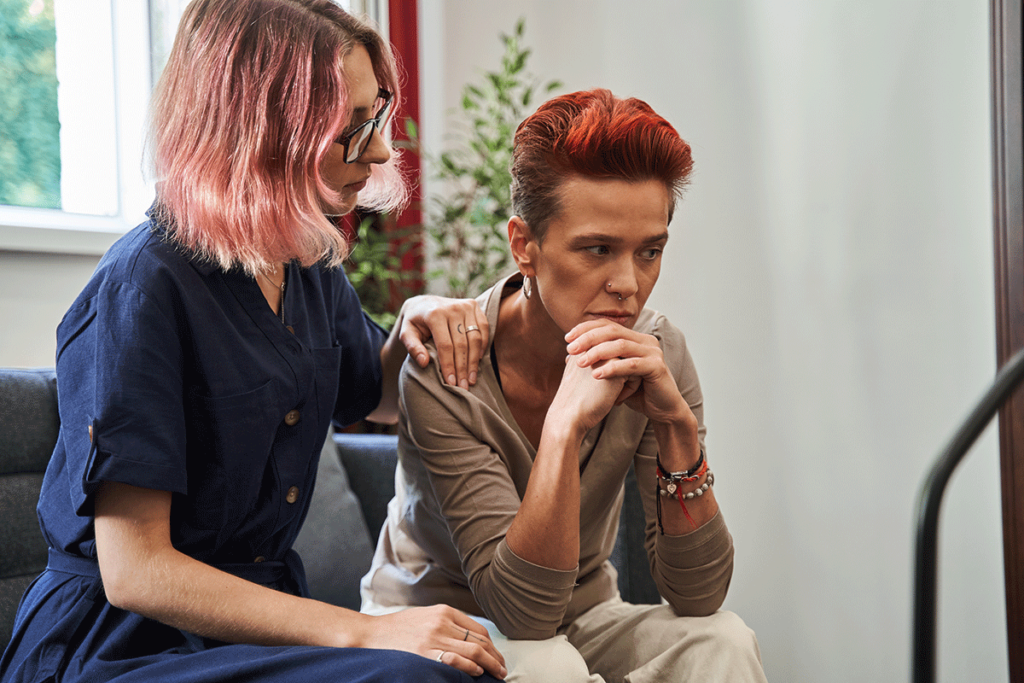It’s not easy to watch a loved one suffer. When they’re going through a tough time, you only want to make it better. But sometimes, no matter how much you want to help, you can’t. That’s why it’s so important to know the signs of post-traumatic stress disorder (PTSD), so you can talk to your loved one about PTSD and encourage them to get the professional help they need. At Genesis Recovery and Wellness (GROW) in Ohio, the compassionate and caring team offers PTSD treatment to help your loved one heal from the signs of PTSD. Contact the GROW team today at 216.331.2998 to get started on the road to recovery.
What to Know About PTSD
PTSD was previously classified as an anxiety disorder, but the fifth edition of the Diagnostic and Statistical Manual of Mental Disorders (DSM-5) now categorizes it as a distinct disorder. PTSD can develop after exposure to a single traumatic event but may also occur after repeated or prolonged exposure to trauma. Traumatic events could be any of the following or something similar:
- Car accident
- Combat
- Natural disaster
- Sexual assault
Anyone who goes through a traumatic experience may have PTSD symptoms in the weeks following it. For most people, these symptoms of PTSD go away over time. But for others, the symptoms may last longer and get in the way of their daily lives. That’s when it becomes PTSD.
4 Signs of PTSD
Suppose your loved one is showing any signs of PTSD. In that case, it’s important to remember that everyone experiences mental health disorders differently, so not everyone will show all four symptoms of PTSD mentioned below. If you’re wondering whether your loved one is struggling with PTSD, here are four PTSD symptoms to look out for in the weeks following a traumatic experience.
1. Avoiding Things That Remind Them of the Trauma
Your loved one may try to avoid anything that reminds them of the traumatic event. This could mean avoiding people or places that remind them of the trauma or avoiding thinking or talking about it.
2. Experiencing Flashbacks or Nightmares
Flashbacks are when your loved one relives the trauma as if it’s happening again in the present. They may also have nightmares or sleep problems. These nightmares may be about the trauma or may be completely unrelated.
3. Feeling Disconnected from Friends and Family
Your loved one may feel disconnected from the people they care about as they develop PSTD. They may withdraw from friends and family or push them away. They may also lose interest in activities they used to enjoy.
4. Struggling to Cope with Their Emotions
Your loved one may find it hard to cope with their emotions after a traumatic experience. They may feel numb, have mood swings, or be easily irritable and angry. They may also feel hopeless about the future.
What to Expect from PTSD Treatment
If your loved one is struggling with PTSD, there are several treatment options available that can help them heal and recover. The first step is usually meeting with a mental health professional for an evaluation so they can develop a treatment plan specifically for your loved one’s needs. This treatment plan may include medication or therapy—or both. The most important thing is that your loved one gets the help they need so they can live their best life possible.
Learn More About PTSD Treatment in Ohio at Genesis Recovery and Wellness
If you or someone you love is struggling with PTSD in Ohio, we can help! Genesis Recovery and Wellness offers comprehensive treatment for those struggling with mental health disorders—including PTSD. Contact Genesis Recovery and Wellness today at 216.331.2998 to learn more about our services or schedule an appointment.

